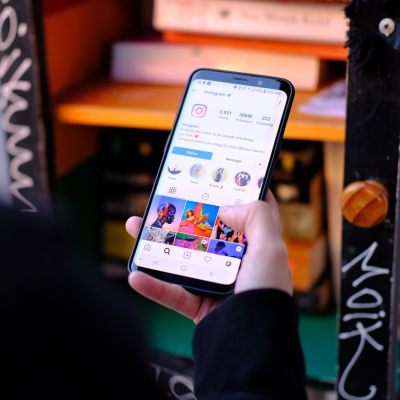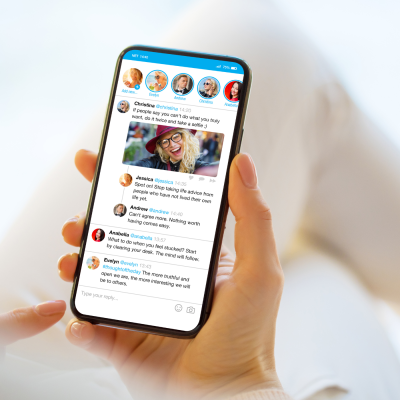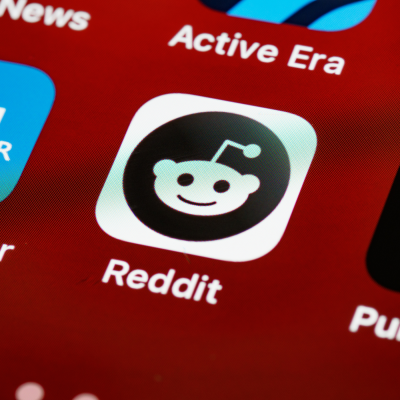Social media has changed how people connect and learn on the internet, and in recent years its impact on education as a communication platform has been getting bigger and bigger. In English learning, social media sites give a lively and more personal way for people to practice languages on mobile devices. More and more, users want to include social media in their learning plans because it lets them engage with a growing community of monthly active users in real time.
Users can find many chances to improve their language skills on popular sites like Facebook and YouTube, as well as newer ones like TikTok and Clubhouse. This blog will explore the different ways social media makes English learning better and how it can help many learners who want to improve their language skills.
The Role of Social Media in Learning English
Social media plays a vital role in learning English by providing exposure to authentic language, allowing learners to interact with native speakers, and offering access to diverse, engaging content. It fosters informal learning through conversations, videos, and posts, while also supporting structured learning through language-focused groups and online communities.
This makes social media a dynamic and accessible tool for improving language skills. Let’s look at this in more detail!
Bridging the Gap Between Informal Learning and Formal Education
Social media bridges the gap between informal learning and formal education by blending interactive, real-world experiences with structured language learning. On platforms like YouTube, learners can supplement formal lessons with videos explaining grammar or pronunciation, while also practising English through informal interactions, such as commenting or participating in discussions.
Additionally, social media groups and pages dedicated to English learning offer resources, quizzes, and peer support, allowing users to apply formal knowledge in informal, everyday contexts. This integration makes learning more continuous, engaging, and practical.

Social Media as a Tool for Collaborative Learning
Social media serves as a powerful tool for collaborative learning by fostering communication and teamwork among learners from all around the world. Platforms like Facebook, WhatsApp, and Reddit enable users to join study groups, exchange ideas, share resources, and practice English together.
Through group chats, discussion forums, and collaborative projects, learners can ask questions, offer feedback, and learn from each other in real time. This collaborative environment not only enhances language skills but also encourages peer-to-peer support and motivation, making language learning more engaging and interactive.

Popular Social Media Platforms for English Learners
Since the rise of social media, social platforms have become an invaluable resource for learners of the English language, offering a variety of different tools for improving language skills. The most popular platforms (Facebook, Instagram, YouTube, Linkedin, and TikTok) provide diverse content for different types of learners.
Let’s take a look at how each of these platforms can help people on their journey to English fluency:
Facebook: Using Groups for Language Exchange
Facebook offers a unique opportunity for English learners to engage in collaborative groups designed for language exchange. These groups connect learners with native speakers and fellow students from around the world, creating a supportive environment for practising English.
Participants can ask questions, share learning resources, and engage in conversations on various topics. Many groups also organise language challenges, live discussions, and peer feedback sessions, allowing learners to improve their speaking, writing, and comprehension skills in a practical, interactive way. This collaborative approach makes Facebook a valuable tool for immersive language learning.

Instagram: A Visual Aid in Learning English Vocabulary
Instagram is an effective visual aid for learning English vocabulary, offering a creative and engaging way to enhance language skills. Through visually appealing content like infographics, flashcards, and short videos, users can easily learn new words, phrases, and their meanings.
Many language instructors and influencers on Instagram share daily vocabulary lessons, contextual examples, and pronunciation guides, making it easier for learners to grasp and retain new words. The platform’s image-focused approach helps reinforce learning by associating words with pictures, making vocabulary acquisition more memorable and enjoyable.

YouTube: Channels Dedicated to English Learning
YouTube is a rich resource for English learners, offering countless channels dedicated to language learning. These channels provide lessons on grammar, vocabulary, pronunciation, and listening skills through engaging video tutorials. Popular channels like BBC Learning English, English with Lucy, and Rachel’s English cater to learners of all levels, offering structured lessons, tips on mastering accents, and insights into everyday English usage, often outperforming traditional methods like those found on Google.
With the ability to pause, rewind, and replay content, learners can study at their own pace, making YouTube an accessible and flexible tool for improving English language skills.
TikTok: Bite-size Language Practice
TikTok has emerged as a dynamic platform for English learning, offering short, engaging videos that make language practice fun and accessible. Many creators on TikTok specialize in teaching English through bite-sized lessons on grammar, vocabulary, idioms, and pronunciation, often using humour and popular trends to capture learners’ attention.
The platform’s interactive features, such as challenges, live sessions, and duet videos, encourage users to participate actively and practice their English in creative ways. With its fast-paced, relatable content, TikTok makes language learning feel more spontaneous and integrated into daily life.
Interactive Learning Through Social Media
Interactive learning through social media has revolutionised the way people acquire new languages. By providing platforms for real-time engagement, collaboration, and feedback, social media enables learners to practice language skills in dynamic, immersive environments.
Whether through live chats, discussion forums, language challenges, or interactive videos, learners can actively participate in conversations, connect with peers, and receive instant responses. This interactive approach makes language learning more engaging, personalised, and effective, as it mimics real-life communication and fosters continuous practice.
Participating in English Challenges on TikTok
Participating in English challenges on TikTok offers a fun and interactive way to enhance language skills. These challenges, often involving trending hashtags or creative tasks, encourage learners to practice speaking, vocabulary, and pronunciation by creating and sharing short videos.
Whether it’s performing a vocabulary drill, responding to prompts, or joining themed language games, TikTok challenges provide immediate feedback from the community and offer opportunities to engage with other learners. This playful approach not only makes practising English enjoyable but also helps build confidence and fluency in a supportive, social environment.

Engaging with Native Speakers on Twitter (Now X)
Engaging with native speakers on Twitter provides a valuable opportunity for English learners to practice real-world language use and gain cultural insights. By following and interacting with native speakers, learners can participate in conversations, ask questions, and join discussions on various topics.
Twitter’s fast-paced, informal nature exposes users to contemporary language use, slang, and idiomatic expressions. Engaging in these interactions helps learners improve their writing skills, comprehension, and vocabulary while also building connections and receiving immediate feedback from fluent speakers.

Reddit: A Hub for English Learning Communities
Reddit is a social networking site that serves as a hub for English learning communities, offering a range of forums and subreddits where learners can connect, share resources, and seek advice. Subreddits like r/EnglishLearning, r/AskReddit, and r/LanguageExchange provide platforms for users to discuss language learning strategies, practice writing, and ask questions about grammar or vocabulary.
These communities often feature discussions, language challenges, and peer reviews, allowing learners to benefit from collective knowledge and support. Reddit’s diverse and interactive nature makes it an invaluable resource for collaborative learning and improving English skills.

Enhancing Listening and Speaking Skills via Social Media
Enhancing listening skills and speaking skills via social media offers learners innovative ways to practice and improve their English language abilities. Podcasts, Whatsapp voice notes, and the new social media platform Clubhouse provide a wealth of auditory and conversational content, from native speaker videos and interactive challenges to real-time discussions and live streams. These tools allow learners to immerse themselves in diverse accents, colloquial expressions, and conversational nuances.
By engaging with authentic content and participating in interactive activities, learners can refine their listening comprehension, pronunciation, and speaking confidence in a dynamic and engaging environment.
Podcasts and Clubhouse for Immersive English Listening
Podcasts and Clubhouse are excellent tools for immersive English listening, offering learners opportunities to engage with native speakers and diverse accents in real time. Podcasts provide an almost infinite amount of topics, from storytelling and interviews to educational content, allowing learners to practice listening to different speaking styles and vocabulary in context.
Clubhouse, with its live audio conversations, enables learners to participate in discussions, ask questions, and engage with speakers on various subjects. Both platforms facilitate exposure to natural language use, improving comprehension and helping learners develop a more nuanced understanding of spoken English.

Using WhatsApp Voice Notes for Pronunciation Practice
Using WhatsApp voice notes for pronunciation practice offers a practical and personalised approach to improving English speaking skills. Learners can record themselves speaking and listen to their pronunciation, intonation, and fluency, allowing for self-assessment and targeted practice.
By sending voice notes to language exchange partners or tutors, learners can receive feedback and corrections in real time, facilitating more focused and effective learning. This method provides a convenient way to practice speaking regularly, build confidence, and refine pronunciation in a casual, low-pressure environment.
Overcoming the Challenges of Learning English on Social Media
Overcoming the challenges of learning English on social media involves navigating a landscape bursting with opportunities yet undermined with potential obstacles. While social media platforms offer diverse resources and interactive tools for language practice, learners may encounter issues such as information overload, varying content quality, and the informal nature of online communication.
Addressing these challenges requires a strategic approach to curating reliable sources, setting clear learning goals, and balancing formal and informal practices. By understanding and managing these difficulties, learners can effectively harness social media to enhance their English language skills.
Navigating Misinformation and Ensuring Credible Resources
Navigating misinformation and finding credible resources on social media are crucial for effective English learning. With the vast amount of content available and the rise in AI generated content, it’s important to identify reliable sources and distinguish between accurate information and misleading or incorrect advice.
To do this, learners should follow reputable language educators, verified accounts, and established educational platforms. Engaging with well-regarded communities, checking multiple sources for confirmation, and using critical thinking skills can help filter out unreliable content.
By focusing on trusted resources and being discerning about the information consumed, learners can enhance their language skills while avoiding common pitfalls.

Balancing Screen Time and Productive Learning
Balancing screen time and productive learning is essential for maximising the benefits of social media posts while avoiding potential drawbacks to mental health. To achieve this balance, social media users should set clear goals for their study sessions and use social media purposefully, focusing on specific learning objectives rather than aimlessly browsing. Incorporating breaks and offline activities into the learning routine can prevent burnout and maintain overall well-being.
By creating a structured schedule that includes dedicated time for focused study, practice, and relaxation, learners can effectively harness the advantages of social media without compromising their productivity or health.

Frequently Asked Questions
What Are the Best Social Media Platforms for English Learning?
Some of the best social media platforms for learning English are Facebook groups for language exchange, Instagram for visual vocabulary help, and YouTube channels focused on English learning. Using these platforms can improve your language skills with fun and interactive content. There are also many amazing English learning apps on the market for you to try out!
How Can Beginners Start Learning English on Social Media?
By following language learning accounts, joining language exchange groups, and watching educational content on Instagram and YouTube, beginners can start their English learning journey. Using interactive features and finding helpful communities are important for learning effectively.
What Are the Common Mistakes to Avoid While Learning English on Social Media?
- Avoid relying only on automated translations.
- Do not neglect grammar rules.
- Engage with native speakers for practice.
- Verify information from reliable sources.
- Participate in language exchange opportunities.
How Much Time Should I Spend Learning English on Social Media Daily?
- To get the most out of learning on social media, spend 30 to 60 minutes each day.
- Being consistent is important.
- This helps you absorb content better and take part in language practice.
Can Social Media Really Help Achieve Fluency in English?
Social media can really help people improve their English skills. By using interactive platforms and talking to native speakers, you can become more fluent. Activities like language challenges on TikTok and chatting on Twitter help you learn in a fun way. Taking advantage of these online experiences is a great way to develop your language skills.
How Social Media Enhances English Learning: Conclusion
Social media has changed how we learn English. From using platforms like Facebook, Instagram, YouTube, and TikTok for vocabulary enhancement and interactive challenges, to listening to podcasts, Clubhouse, and WhatsApp voice notes for immersive listening and pronunciation practice, social media offers a wealth of opportunities to enrich language skills.
While navigating challenges such as misinformation and balancing screen time is crucial, a strategic approach can help learners make the most of these digital resources. By integrating social media into their learning routines thoughtfully and purposefully, learners can enhance their English proficiency in a dynamic and supportive environment.





